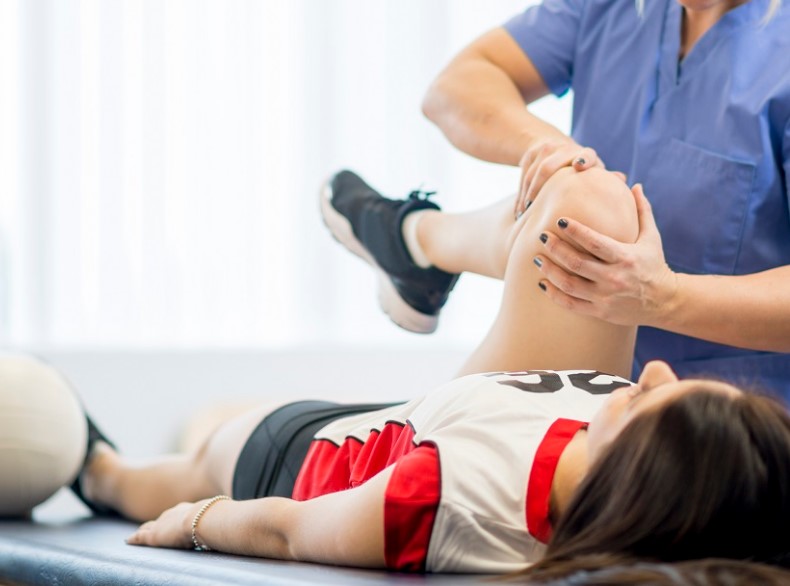Physical therapy is a rewarding and challenging career that involves helping people regain their physical abilities and improve their quality of life. If you’re interested in pursuing a career in physical therapy, you’ll need to start by choosing an undergraduate major that will prepare you for the challenges and opportunities of this field. In this article, we’ll explore some of the best undergraduate majors for a physical therapy career, and provide tips for success in each major.
Why the right undergraduate major matters
Choosing the right undergraduate major is critical for success in a physical therapy career. Physical therapists work with patients who have a variety of medical conditions, injuries, and disabilities, so it’s essential to have a solid understanding of the human body, medical terminology, and treatment techniques. By selecting an undergraduate major that provides a strong foundation in these areas, you’ll be better equipped to succeed in graduate-level physical therapy programs and in your future career.
Biology
Biology is one of the most popular undergraduate majors for students who are interested in pursuing a physical therapy career. A biology major provides a deep understanding of the human body, including its anatomy, physiology, and biochemistry. These topics are essential for a physical therapist, who needs to understand how the body works in order to diagnose and treat patients effectively.
Kinesiology
Kinesiology is another excellent undergraduate major for students who want to become physical therapists. Kinesiology majors study the mechanics of human movement, including how muscles, bones, and joints work together to produce motion. This knowledge is critical for a physical therapist, who must be able to analyze patients’ movements and develop treatment plans that help them move more effectively and with less pain.
Exercise Science
Exercise science is a multidisciplinary field that combines elements of biology, kinesiology, and other sciences to explore the physiological and psychological effects of physical activity on the human body. An exercise science major provides a deep understanding of how the body responds to exercise, which is essential for a physical therapist who helps patients regain strength, mobility, and flexibility.
Psychology
Psychology is an excellent undergraduate major for students who are interested in working with patients who have mental health issues, such as depression or anxiety, that can impact their physical abilities. A psychology major provides a solid foundation in the biological and behavioral aspects of mental health, which can be invaluable for a physical therapist who is working with patients who are struggling with psychological issues that are affecting their physical health.
Pre-Physical Therapy
Some colleges and universities offer a pre-physical therapy major, which is designed specifically for students who plan to pursue a career in physical therapy. This major typically provides a strong foundation in the sciences, including biology, chemistry, and physics, as well as courses in kinesiology, anatomy, and physiology. A pre-physical therapy major can be an excellent choice for students who are certain they want to become physical therapists and want to ensure they are well-prepared for graduate-level physical therapy programs.
Tips for success in undergraduate majors for physical therapy
No matter which undergraduate major you choose, there are a few tips for success that can help you prepare for a career in physical therapy:
Build a strong foundation in the sciences
Physical therapy is a science-based field, so it’s essential to have a solid foundation in the sciences, including biology, chemistry, and physics. Take courses in these subjects and make sure you understand the fundamental principles.
Gain hands-on experience
Internships, shadowing opportunities, and volunteering can all provide valuable hands-on experience that can help you prepare for a career in physical therapy. Look for opportunities to work with physical therapists or in related environments to gain practical skills and knowledge.
Develop strong communication skills
As a physical therapist, you’ll need to communicate effectively with patients, their families, and other healthcare professionals. Take courses in communication, public speaking, and interpersonal relationships to develop these critical skills.
Maintain a high GPA
Graduate-level physical therapy programs are highly competitive, and admission is often based on a combination of academic achievement, practical experience, and personal qualities. Maintaining a high GPA in your undergraduate major can improve your chances of admission to top physical therapy programs.
Conclusion
Choosing the right undergraduate major is a critical step in preparing for a career in physical therapy. Majors in biology, kinesiology, exercise science, psychology, and pre-physical therapy can all provide valuable knowledge and skills that will help you succeed in graduate-level physical therapy programs and in your future career. By following the tips for success outlined in this article, you can increase your chances of success and achieve your goals as a physical therapist.
FAQs
The minimum GPA varies by program but is typically around 3.0.
Yes, but you’ll need to complete additional coursework and training to qualify for admission to a graduate-level physical therapy program.
Yes, most physical therapy programs require specific prerequisite courses in the sciences, such as biology, chemistry, and physics.
Communication skills, analytical skills, problem-solving skills, and a strong work ethic are all essential for success as a physical therapist.
The job outlook for physical therapists is excellent, with a projected job growth rate of 18% from 2022 to 2032, much faster than the average for all occupations.

